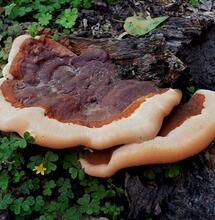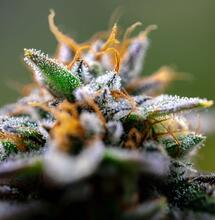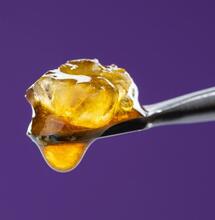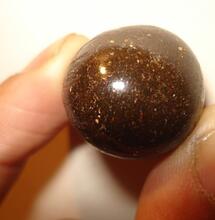What Are All the Effects of Marijuana on Your Sleep?

It’s generally known that cannabis can help put people to a good night’s sleep, but using copious amounts of marijuana far too often may come with some adverse reactions related to your sleep. Long-term exposure to marijuana may result in weakened sleep quality or reaching a stage where you can’t sleep without taking a toke before bedtime. Therefore, it’s good to know what happens in your brain when you sleep high. In this article, we go through all the effects of marijuana on your sleep.
A lot of people smoke marijuana to relax in the evening and sleep better during the night. Everyone has at least one friend who can confidently claim that before they discovered cannabis they didn’t know what was good sleep. Sleep high might be a thing among recreational users, and it’s also a cure for many medicinal users. Cannabis is what offers relief to those who struggle with insomnia, chronic pains, or PTSD, helping them sleep better in the evening. And as you know, if you don’t get proper sleep, the world can be a tiresome, dreary experience.
Is Sleep High a Thing?
Whether you wonder how often people use cannabis to get a better sleep at night, the answer is: it’s pretty common. In fact, around 70% of young adults report that they use cannabis recreationally just because it helps them with sleep. Among people who use cannabis therapeutically, such as patients with chronic pain, more than 80% say that the herb medicine improves their sleep, according to sleep health website SleepFoundation.org.
Since it’s such a popular remedy for sleep, let’s dig deeper and find out more about the science behind marijuana’s effects on sleep. Is marijuana entirely harmless, or can it sometimes backfire with sleep?
What Happens When You Sleep High?
You can sleep high, and you will certainly not wake up high. At least if you didn’t take a THC-bountiful cookie. While sleeping high is generally not dangerous, it still affects your sleep cycle. Most of the time marijuana is beneficial for sleep, but at other times weed use might not go down so well with some users.
In any case, it’s good to be informed on what exactly happens in your brain when you go to sleep high. There are both benefits and some risks when using marijuana as a sleeping aid.
Cannabis facilitates better sleep by calming down your mind and body. More specifically, it increases on adenosine, an inhibitory neurotransmitter in the brain that acts as a central nervous system depressant. Adenosine is what promotes sleep and suppresses arousal.
Choosing strains and products that contain more THC than CBD are more effective at facilitating deep sleep. However, long-term use of THC may disturb sleep quality after a while, which is why it’s important for users to take occasional breaks and avoid relying on marijuana for sleep all of the time.
How Marijuana Affects REM and Deep Sleep Cycles?
Consuming marijuana strains with higher levels of THC typically reduces the amount of REM sleep you get, and this has been shown in multiple scientific studies over the years.
Decreased REM sleep translates to less dreams, less bodily movements during sleep, as well as slower heartbeat and breathing rate. Which could be good news for those struggling with dream-disturbed sleep, restlessness during the night, and conditions such as PTSD. It may mean fewer nightmares and bad dreams for them, and more hours of deep and restful sleep.
REM sleep is different from ‘deep sleep,’ which is thought to be the more healing part of the sleep cycle. However, it’s important to get both when you call it a night. Lack of REM sleep, for instance, can impair cognitive function as well as the working of the immune system. So, the take here is THC-rich cannabis might compromise sleep quality in the long run, even though it initially appears to help as it puts you in a state of deep sleep.
In addition, potent marijuana strains and products can produce strong sedative effects that can make you feel groggy the next day. In some users, grogginess may intensify over time, as the body is continually overexposed to marijuana before sleep.

Can Cannabis Offer Relief for Insomnia?
Marijuana may help insomnia patients when used occasionally, though medical researchers are still undetermined if long-term exposure is ultimately beneficial or damaging for sleep quality.
Sleep psychologist Deirdre Conroy, affiliated with the University of Michigan Health, suggests that the effect from cannabis change during sleep time at night.
“When we look at the effects of marijuana on sleep, we tend to see that in the short term, it does help people fall asleep and improves the sleep quality in the first part of the night,” according to Dr. Conroy. In the second part of the night, “you can have more awakenings and fragmented sleep,” he said.
Chronic use of marijuana may ultimately produce a negative effect on sleep.
“In the long term, some of the improvements that people experience with marijuana can wane and insomnia can return with more frequent use and abrupt discontinuation of marijuana,” Conroy said.
Can Marijuana Cause Sleep Apnea?
While cannabis can be helpful for sleep, the same cannot be said if you have sleep apnea. More precisely, if you smoke cannabis it might actually worsen this condition or trigger it.
Sleep apnea is a potentially serious medical condition where breathing stops for a few seconds while sleeping. The brain often acts protective and signals you to wake up, which can lead to poor sleep. Sleep apnea was added as a qualifying condition in some state medical cannabis programs, but medical experts are doubtful if it should really be there.
That is because smoking has been linked with obstructive sleep apnea. According to some research, smokers have three times greater chances to develop sleep apnea than non-smokers. Whether it’s inhaling tobacco or marijuana smoke, that doesn’t matter as much. Smoke itself can aggravate inflammation in the upper airway, and sleep apnea itself as a syndrome promotes continual low-level inflammation in this area.
Therefore, using marijuana in its non-smokable forms, as in oils, tinctures, powder or tablets, may be a better choice for those users who experience sleep apnea.
What Is the Most Convenient Way to Use Cannabis for Sleep?
It makes a difference whether you ingest or smoke cannabis, or whether you do that an hour or three hours before hitting the hay. Also, it’s important to use those cannabis products and strains that you notice produce a better sleep for you personally.
If you want to experience all the good effects of marijuana on your sleep, here are some of the preferable ways on how to use it.
Good timing
Timing is everything when you want to use cannabis to catch some Z’s. It usually works best to indulge in marijuana around an hour before you lie in. An hour before bedtime is ideal as marijuana will take around a few hours to generate all its effects. In the first hour, it may still make you more energetic, before you experience a plunge in energy and alertness.
Avoid edibles
Edibles are unpredictable how and when they’ll kick in. Sometimes it needs an hour, but in other instances it can be a bit later. Edibles can also produce a longer-lasting high and leave you dizzy or confused in the morning. Because of how they travel in the body and need to be processed in the liver, the duration of marijuana edibles is much longer and sometimes it takes up to 12 hours for all their effects to take place. So, don’t plan edibles for sleep.
Be wise with THC
While every person can tolerate different amounts of THC, moderate intake might be optimal for sleep. Marijuana strains and products with higher levels of THC can cause anxiety, especially in people who reach out for cannabis to reduce their anxiety. THC may overstimulate your body and nobody wants that at the end of the day.
See what works
Experiment with various strains before finding out the ones that work. Or, if you are a total newbie with weed, ask for advice at your local dispensary. Budtenders are usually well-clued which marijuana strains and products can help produce a good night’s sleep without any adverse reactions such as heightening your anxiety or feeling groggy in the morning.
In conclusion, marijuana can help you sleep better, but it’s always good to bear in mind all its potential effects, including the adverse reactions. It’s important to not overdo it and take a break from it every once in a while. While you can use marijuana as a supplement to support your sleep, remember that it’s also important to practice good sleep hygiene and adopt healthy lifestyle habits that can promote sleeping well at night.
Also read on Soft Secrets:
- CBD Is Effective for Anxiety, Depression, and Poor Sleep











